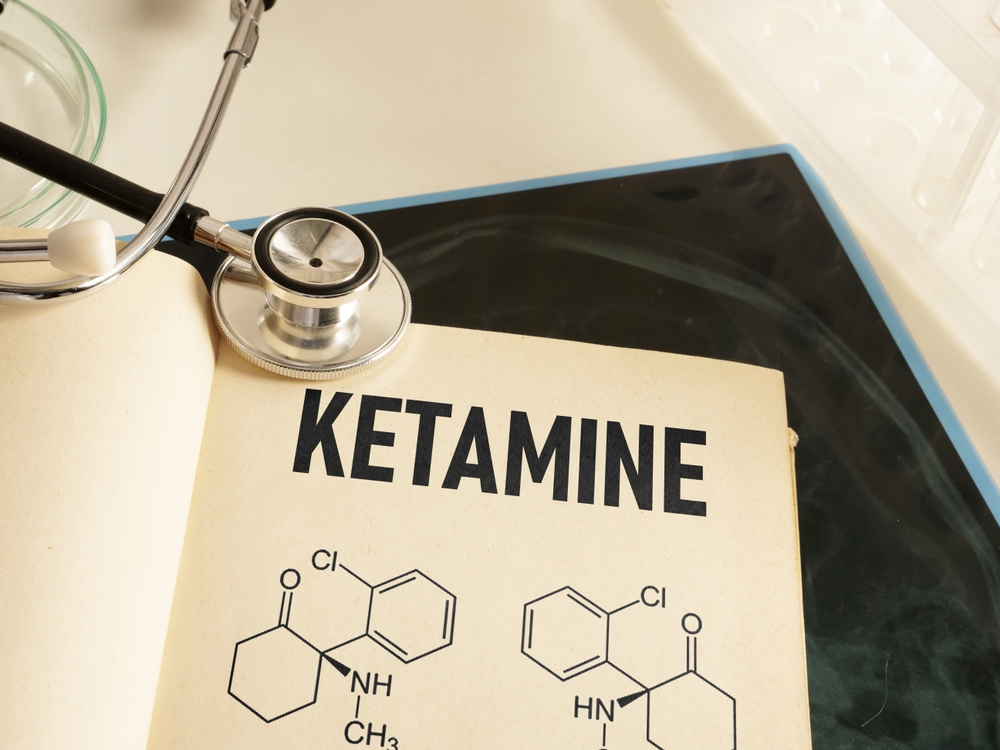Last Updated:
July 21st, 2025
Ketamine Addiction | Symptoms, Effects and Causes
What is ketamine?
Ketamine is a powerful dissociative anaesthetic commonly used in medical and veterinary settings. Originally developed as a surgical anaesthetic, it works by disrupting communication between the brain and the body, producing pain relief and sedation. In humans, ketamine is often used during surgeries or for pain management in emergency settings due to its rapid onset and reliable effects.
Recently, ketamine has gained attention for its use in treating severe depression and treatment-resistant mental health conditions. Administered in controlled medical environments, it can provide rapid relief for symptoms when other treatments fail.
However, outside of medical contexts, ketamine is sometimes misused recreationally for its hallucinogenic effects, which can lead to addiction and significant health risks when taken irresponsibly.

Is Ketamine addictive?
Ketamine is addictive although its addictive potential is psychological rather than physical. Ketamine works by altering the brain’s glutamate system, producing dissociative and euphoric effects that some people find highly reinforcing. These effects can create a strong desire to use the drug repeatedly, especially in social or recreational settings.
Over time, individuals may develop a tolerance, requiring higher doses to achieve the same effects. This increases the risk of addiction and long-term health issues. Additionally, frequent ketamine use can lead to psychological dependence, where individuals feel they need the drug to cope with stress or emotional difficulties.
Is a Ketamine addiction dangerous?
Ketamine addiction is dangerous with risks extending beyond its immediate effects to long-term physical damage. One of the most severe consequences is the damage it can cause to the bladder and urinary tract. Ketamine bladder syndrome (KBS), first identified in 2007, is now widely recognised by urology units in the UK and internationally.
Studies highlight the prevalence of urinary tract symptoms (LUTSs) among ketamine users. Over 20% of users report such symptoms but research from Spain and Hong Kong indicates much higher rates, with 46% and 90% of users respectively experiencing LUTSs. These symptoms can range from pain and difficulty urinating to severe bladder damage requiring surgical intervention.
National press reports have also raised alarms about the bladder and kidney complications tied to ketamine abuse, underlining the serious health risks associated with long-term use.
Beyond urinary issues, ketamine addiction can lead to cognitive impairment, memory loss and mental health problems, further emphasising the need for awareness and early intervention.
What are the signs of ketamine addiction?
Spotting the signs of ketamine addiction early is crucial for ensuring the right help is sought, whether for yourself or someone you care about. Ketamine addiction can develop subtly, with its effects manifesting in various ways that might not always be immediately noticeable. Understanding the behavioural, physical and psychological signs can help identify a problem before it worsens.
Behavioural signs
- Increased tolerance: Using larger doses of ketamine to achieve the same effects indicates the brain’s growing dependence on the drug.
- Neglecting responsibilities: Work, school or personal obligations may be ignored as ketamine use takes priority.
- Frequent drug-seeking: A preoccupation with obtaining or using ketamine, often at the expense of financial or social stability.
- Isolation from loved ones: Users may withdraw from social connections to hide their ketamine use or recover from its effects.
- Engaging in risky behaviour: Using ketamine in unsafe environments or combining it with other substances increases the likelihood of harm.
Physical signs
- Urinary tract issues: Pain or difficulty urinating, a hallmark of ketamine bladder syndrome, is common among long-term users.
- Memory problems: Chronic ketamine use can impair memory, leading to frequent forgetfulness or difficulty recalling recent events.
- Poor coordination: Ketamine’s dissociative effects can result in unsteady movements or difficulty performing basic tasks.
- Fatigue or lethargy: Users may appear excessively tired due to the sedative effects of the drug and its impact on the body.
- Weight changes: Changes in appetite caused by ketamine can lead to noticeable weight loss or gain.
Psychological signs
- Depression or anxiety: Long-term ketamine use can disrupt brain chemistry, leading to persistent emotional distress.
- Cravings for ketamine: An overwhelming desire to use the drug, even when aware of its harm, is a strong indicator of addiction.
- Dissociation or detachment: Persistent feelings of being disconnected from reality may continue even when not using ketamine.
- Mood swings: Irritability, anger or sudden emotional shifts can result from ketamine’s effects on neurotransmitter balance.
- Paranoia or confusion: Chronic use can alter perception, causing unfounded fears or an inability to focus on reality.
Do I have a ketamine addiction?
It can be challenging to even flirt with the idea that you might have a ketamine addiction or be exhibiting the hallmark signs of one. Ketamine’s effects can make it difficult to recognise when occasional use crosses the line into dependency. However, taking a moment to check in with yourself is never a bad idea.
Below are six questions that, when answered with “yes,” could indicate a ketamine addiction:
- Do you find yourself using ketamine more frequently or in higher doses than you initially intended?
- Have you experienced cravings or a strong urge to use ketamine, even when it’s inconvenient or harmful?
- Do you neglect responsibilities, such as work, school or family, because of your ketamine use?
- Have you noticed physical issues like difficulty urinating or bladder pain but continued using ketamine anyway?
- Do you feel anxious, restless or disconnected from reality when you haven’t used ketamine for a while?
- Have you tried to cut back or stop using ketamine but found it difficult or impossible?

If you’ve answered “yes” to any of these questions, it might be time to seek professional advice. Taking action now can make all the difference in preventing further harm and starting the journey toward recovery.
How is ketamine addiction treated?
Ketamine addiction can be treated through inpatient or outpatient rehabilitation. Outpatient care offers flexibility for those with mild addictions or strong support systems but inpatient treatment is highly recommended for severe cases. Inpatient programmes provide a structured and supportive environment, crucial for addressing the challenges of ketamine addiction and preventing relapse.
Ketamine detox is the first major step, focusing on safely managing withdrawal symptoms as the body adjusts to the absence of ketamine. Professional support is essential during this stage, as withdrawal can cause intense cravings and emotional distress.
Therapy follows ketamine detox, addressing the root causes of addiction and helping individuals build healthier coping mechanisms. Cognitive-behavioural therapy (CBT), group therapy and holistic approaches like mindfulness or yoga are commonly used. These therapies work together to promote emotional healing and prevent relapse.
Need help?
If you or someone you know is struggling with ketamine addiction, reaching out to a rehab centre can be life-changing. Professional support ensures a safer recovery and helps pave the way to long-term health and well-being.
Our compassionate team are ready and available to take your call, and guide you towards lasting the lasting addiction recovery you deserve.
Frequently Asked Questions
(Click here to see works cited)
- Srirangam S, Mercer J. Ketamine bladder syndrome: an important differential diagnosis when assessing a patient with persistent lower urinary tract symptoms. BMJ Case Rep. 2012 Sep 30;2012:bcr2012006447. doi: 10.1136/bcr-2012-006447. PMID: 23035160; PMCID: PMC4544340.
- Peter Grinspoon, MD. “Ketamine for Treatment-Resistant Depression: When and Where Is It Safe?” Harvard Health, 15 Feb. 2024, www.health.harvard.edu/blog/ketamine-for-treatment-resistant-depression-when-and-where-is-it-safe-202208092797.

